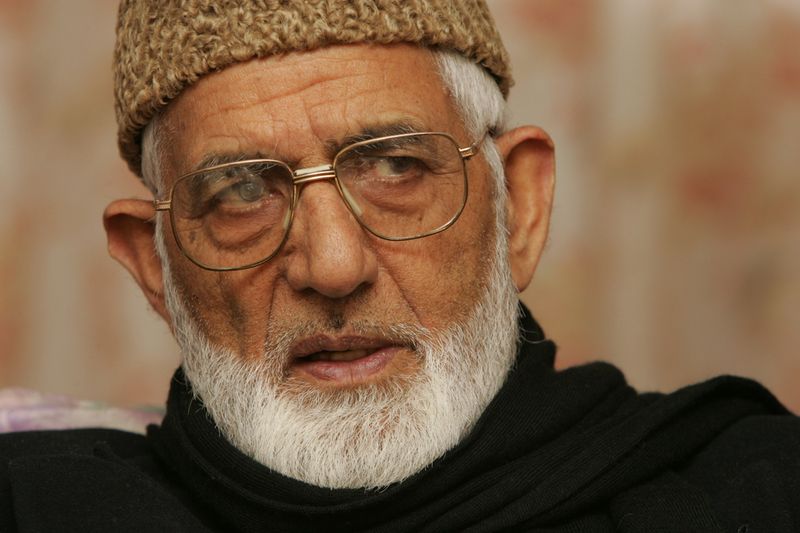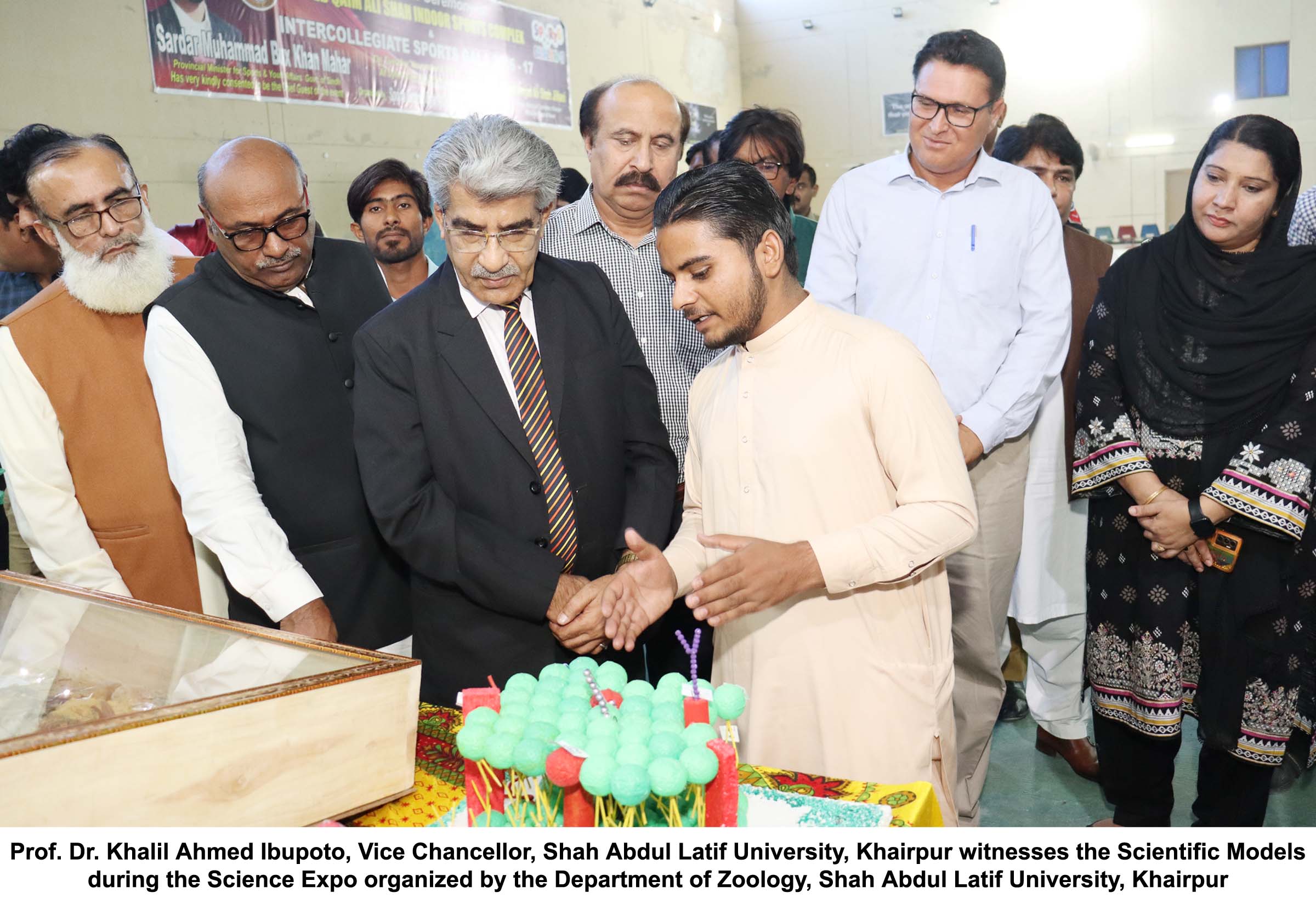The veteran Hurriyat leader and the icon of Kashmir freedom movement, Syed Ali Gilani, embraced martyrdom while in detention in Srinagar on 01 September 2021 at the age of 92. His demise brought to the end an era of valor, courage and resistance against oppression and subjugation.
Syed Ali Gilani, who had already been suffering from multiple ailments, remained under house arrest from 2010 till his death. This prolonged house detention took heavy toll on his health.
On the orders of the Indian government in 2015, the residence of the veteran leader was converted into a sub-jail and the order was still in vogue when he breathed his last. After converting his residence and office at Hyderpora into a sub-jail, police also restricted the use of mobile and telephone services and barred the communication of the Hurriyat leader and other office-bearers with the outside world.
The occupation authorities had not only kept Syed Ali Gilani confined to his residence but also denied him proper medical care. As a result, he developed serious complications including breathing problems due to chest congestion in the afternoon of 01 September 2021 and passed away at 10:30 PM.
The veteran leader began his political career in 1950. He remained associated with the Jamaat-e-Islami Jammu and Kashmir for most part of his life but later founded his own party, Tehreek-e-Hurriyat Jammu and Kashmir. He led the All Parties Hurriyat Conference and quitted the pro-freedom amalgam on worsening of his health condition.
Syed Ali Gilani all along his life strived for the cause of freedom of Kashmir from Indian illegal occupation. He remained at the forefront of the Kashmiris’ struggle for right to self-determination. He always advocated resolution of the Kashmir dispute in accordance with the Kashmiris’ aspirations and the relevant UN resolutions on the issue.
Syed Ali Gilani was a staunch opponent of Indian illegal occupation of Jammu and Kashmir and his stand on the Kashmir dispute invited the wrath of the Indian authorities. He spent more than 13 years in Indian jails. He was first imprisoned in 1962 and was even booked under sedition charges for challenging India’s illegal occupation over Jammu and Kashmir. Indian rulers were even afraid of his dead body. It is evident from the fact that the Indian forces’ personnel snatched away the body of the veteran leader from his family and forcibly buried it in the darkness of the night in a local graveyard at Hyderpora around 300 meters away from him residence – preventing the family from fulfilling his will of burying him at the Martyrs’ Graveyard at Eidgah in Srinagar.
Syed Ali Gilani remained passionate advocate of Jammu and Kashmir’s Accession to Pakistan throughout his life. The slogan ‘Hum Pakistani Hain, Pakistan Hamara Ha’ was coined by Syed Ali Gilani. In recognition of his decades-old struggle for Kashmiris’ right to self-determination, Pakistan President Dr Arif Alvi had conferred Nishan-i-Pakistan, the country’s highest civil award, on Syed Ali Gilani, 14 August 2020.
Syed Ali Gilani was the leader of masses, a crowd puller, an intellectual, deep thinker, visionary, brilliant and an articulate scholar and above all an institution by himself. He will always be remembered for his boldness, fair play, straightforwardness and his oratory skills.
With his death an era has ended.
The iconic Kashmiri Hurriyat leader and face of Kashmir resistance movement, Syed Ali Gilani, who challenged India’s hegemonic rule over Indian illegally occupied Jammu and Kashmir (IIOJK) for decades, embraced martyrdom on 01 September 2021 after remaining in 12 years’ Indian detention in his residence in Srinagar. He was 92.
The death of Syed Ali Gilani under house detention has further elevated his stature among the Kashmiris. The veteran leader was already regarded as an epitome of dedication and sacrifice and will continue to inspire the struggling people of the territory in the times to come. He would continue to be viewed as an icon and great leader who strived for the sacred cause of freedom throughout his life, ultimately sacrificing himself for it. Syed Ali Gilani had remained an ardent supporter of Pakistan, a staunch freedom-fighter along with his family and a symbol of resistance against the Indian tyranny all through his life. He staunchly advocated Jammu and Kashmir’s Accession to Pakistan.
Syed Ali Gilani was born in Zurmunz in Bandipore on 29 September 1929. He was educated at Sopore, and finished his studies at the Oriental College, Lahore (Pakistan). He remained associated with Jamaat-e-Islami Jammu and Kashmir for most part of his life but later founded his own party, Tehreek-e-Hurriyat Jammu and Kashmir. He led the All Parties Hurriyat Conference (APHC) until late June 2020 quitting the pro-freedom amalgam due to his worsening health condition. He was elected to the Kashmir Legislative Assembly in 1972, 1977 and 1987.
Syed Ali Gilani’s passport was seized by the Indian authorities in 1981 due to his pro-freedom and anti-India activities. Except for Hajj pilgrimage in 2006, he was never allowed to go abroad. He was diagnosed with renal cancer in the same year. As the doctors advised his treatment from abroad, the Indian authorities returned Syed Ali Gilani’s passport to his son. In 2007, his condition worsened, although in the early stages of the cancer, it was life-threatening and a surgery was advised. He was set to travel either to the UK or the US. However, his visa request was rejected by the American government and he went to Mumbai for the surgery.
On 06 March 2014, Syed Ali Gilani fell ill with severe chest infection. He had been under house arrest since 2010. In May 2015, he applied for passport to visit his daughter in Saudi Arabia but Narendra Modi-led fascist Indian government didn’t entertain his application.
Syed Ali Gilani spent many years in different Indian jails for opposing India’s illegal occupation of Jammu and Kashmir. He endured physical and mental torture during his imprisonment. On 29 November 2010, he, along with noted Indian writer Arundhati Roy, activist Varavara Rao and three others, was charged under sedition by the Indian government for their speeches at a seminar in New Delhi. The charges carried a maximum sentence of life imprisonment. After the 2019 Pulwama incident, India took stronger action against pro-Pakistan Hurriyat leaders including Syed Ali Gilani. India’s Enforcement Directorate levied a penalty of Rs 14.40 lakh and ordered confiscation of nearly Rs 6.8 lakh in connection with a Foreign Exchange Management Act case against him.
It is unfortunate that despite being a patient of multiple chronic and life-threatening ailments, the Indian authorities kept Syed Ali Gilani under house arrest for so many years that took heavy toll on his health. In 2015, Modi government had declared his Hyderpora residence a sub-jail and imposed restrictions on his free movement and freedom of speech which remained in force till his death. He developed serious complications on 01 September 2021 and breathed his last later in the night.
Soon after the news of Syed Ali Gilani’s demise spread, announcements were made from mosques in Srinagar, asking people to come out of their homes to pay homage to the iconic leader. However, the occupation authorities imposed strict military siege and communication clampdown by deploying tens of thousands of Indian military and paramilitary personnel and snapping the internet and mobile phone services.
As the dead body was wrapped in Pakistani flag and the mourners chanted pro-freedom and pro-Pakistan slogans like ‘We Want Freedom’, ‘Hum Pakistani Hain Aur Pakistan Hamara Hai’, a heavy contingent of Indian forces’ personnel raided the residence of the veteran leader at midnight, tortured his family members and snatched the body by force. In the course of resistance, Syed Ali Gilani’s son Dr Nayeem and his wife were injured in police torture. The forces’ personnel took away the dead body and buried it at Hyderpora graveyard in the darkness of night in violation of the will of Syed Ali Gilani, who according to his family, wanted to be buried at Martyrs’ Graveyard at Eidgah in Srinagar. Even the family members were not allowed to attend the last rites of the veteran leader. Massive clashes broke out between Kashmiri youth and the Indian forces’ personnel in Nawabazar area of Srinagar following the forced burial of the veteran leader. People in large numbers came out on streets after Modi-led fascist regime did not allow them to attend the funeral of their beloved leader and clashed with Indian troops and police. Indian forces fired teargas shells on the protesters. Analysts said that had India not forced the people to stay indoors at gunpoint it would have been the largest funeral gathering in the history of Jammu and Kashmir.
The curfew and restrictions imposed by the occupation authorities continued for days to prevent people from holding funeral prayers in absentia for Syed Ali Gilani and conducting marches on the call of the APHC to pay tributes to their beloved leader. Despite curfew, people offered funeral prayers in absentia for the veteran leader in Srinagar and other areas of the occupied territory on 03 September. The APHC had released a protest calendar appealing to the people of IIOJK to observe shutdown, hold funeral prayers in absentia for the martyred leader and conduct marches towards Hyderpora and Eidgah to pay homage to him.
















